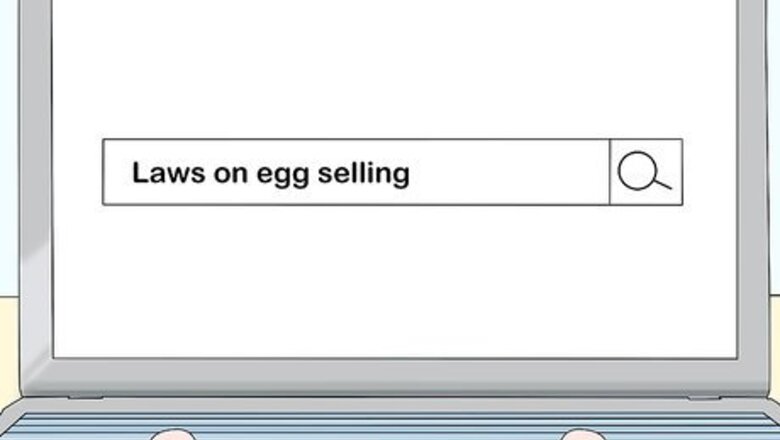
views
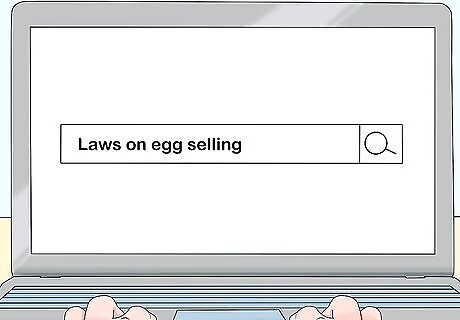
Research laws and regulations in your area. The first thing you'll need to set aside to do before you start selling eggs is to research the laws on egg selling where you are located or where you are planning to sell. Some states may require you to have a licence whilst others are perfectly fine with egg selling.
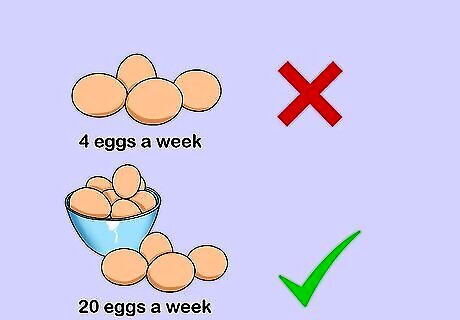
Keep a large flock. If you are going into an egg selling business, only getting about four eggs a week isn't going to cut it. Keep a flock of twenty or more to ensure you get a good amount of eggs weekly. Choose egg laying breeds. Do not purchase breeds that cease to lay eggs and go broody far too often such as silkies. You also won't want to purchase bantams which lay smaller eggs and tend to lay less, purchase a stand breed instead. The top egg laying breeds are leghorns, Rhode Island reds and Plymouth rocks. Do not keep a whole heap of roosters. You want a 100% hens so that you get all the eggs you need. If you want to keep a rooster, keep only one in the flock. Purchase pullets. When starting off with a flock avoid incubating eggs. You will get 50% roosters and 50% hens. By purchasing sexed pullets this will ensure you get eggs and no quarrelling or loud crows between roosters.

Keep a large coop with plenty of nesting boxes. Nesting boxes are essential to the egg selling business. The chickens will learn to lay their eggs in the nesting boxes, making it easier for you to locate them. Also, make sure you have easy access to the nest boxes such as a life up hatch to them.

Keep your hens on a high-quality diet. The hens should be kept on a base of a high-quality feed whilst supplemented with calcium to avoid malformed eggs. Calcium can be found in crushed oyster shells or crushed eggs shells. Make sure that when you reuse the egg shells they are fully rinsed from yolk. This is to avoid egg eating in the flock.
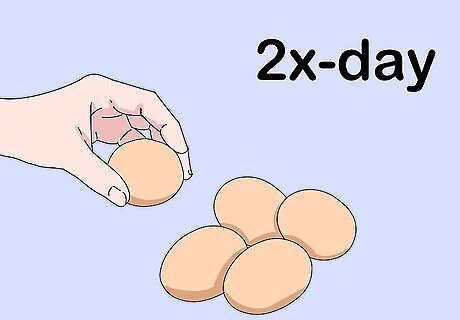
Collect eggs twice a day. With a large flock there will be freshly laid eggs all day (hopefully). The eggs should be collected every morning when you let the flock out and every afternoon when you shut the flock in for the night. This will ensure you collect all eggs throughout the day. Keep track of the date and time of when the eggs were collected. You may need to inform the customer or store of when the eggs were collected.
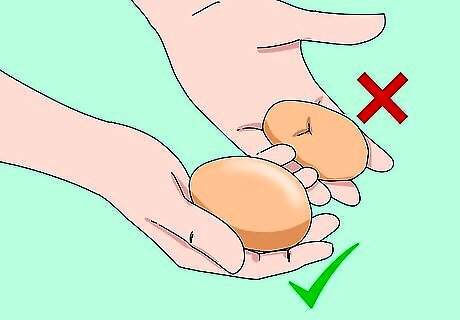
Inspect the eggs. You are doing this to ensure the egg has no cracks, isn't malformed, has a strong shell and is freshly laid. Any eggs that have problems with them mustn't be sold. Be sure to take care of the problem too (malformed eggs can be from a lack of nutrition or calcium in the chickens diet).
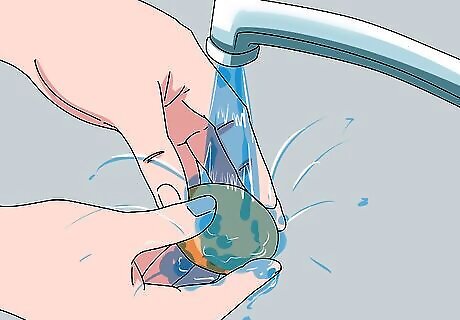
Wash the eggs. There may be laws on the condition you sell your eggs in - meaning they might be required to be washed before sold. Even if there isn't a speck of dirt on the eggs it might still be necessary for you to give them a quick rinse before they get packaged up. If the eggs are rinsed, they will need to be refrigerated.
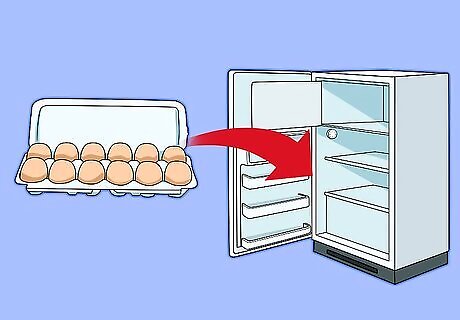
Store the eggs. The eggs should be stored in egg cartons and sold in dozens (12 eggs to a carton). Store them at room temperature if the eggs are unwashed unless the climate is hot and humid or the eggs are washed, in that case they should be stored in the refrigerator. When eggs are washed, the natural protective bloom is removed, leaving the egg pores open to bacteria. This is why eggs that have been washed or rinsed, should be refrigerated and not stored at room temperature. Again, check your local laws and regulations on egg selling. The eggs might have to go in the refrigerator and might not be allowed to be stored outside of the fridge.
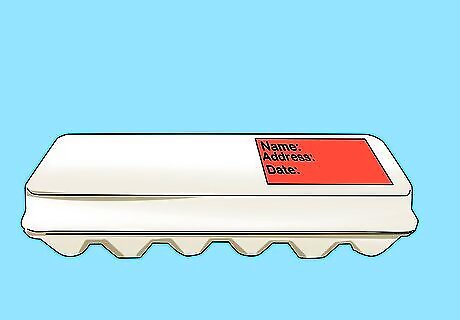
Package the eggs. The eggs should be packaged in egg cartons and labelled with your address, name, contact details and the date of when the eggs were collected. Possibly include a picture of your hens on the front of the packaging and a description of the hens lifestyle - such as whether it's free-ranged, what it eats, it's living conditions, etc. Check local laws and regulations on egg selling once again. You may be able to use recycled egg cartons or have to purchase non-recycled ones. Visit a local recycle centre to get access to recycled egg cartons.
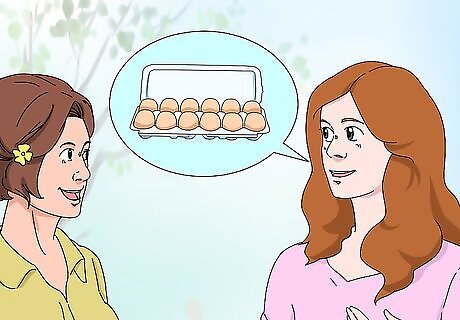
Advertise your eggs. Try selling to local stores or people you know such as neighbours, friends or family. Also take a try of selling in online poultry forums, groups, sites or places such as Craigslist. Keep a good description of you, your hens and the eggs. Including whether your hens are free-range, what diet they're kept on, the collection date, whether you can drop of, etc. Also post a picture of your hens in action - this is proof of their free-range lifestyle.




















Comments
0 comment